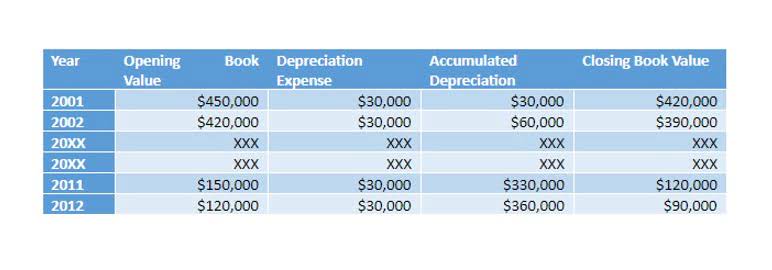
The buyer is thus responsible for clearing the cargo once it arrives and paying any import duties and charges. The seller handles a large chunk of the shipment, and the price charged for this privilege might not always represent the best deal. For this reason, some buyers prefer handling this to keep costs down or ensure the goods arrive more quickly or safely. Whether you ultimately decide to ship FOB or choose another agreement, it’s important to know all of your options so you can choose the one that’s best for you. This guide should help you understand FOB shipping, which should get you on your way to knowing how best to ship your goods internationally for your business. Something to watch out for when you pay for the goods is paying more than you need to for the international payment.
Transfer of Ownership
Many times, sellers will invoice buyers for the cost of shipping and insurance, adding extra fees to increase their profit. Even so, buyers sometimes prefer CIF contracts because of the convenience of not dealing with any risks, claims, or freight issues fob shipping point while the goods are transported. With FOB destination, the sale of goods is finalized once they arrive at the buyer’s destination. In this case, the seller may take care of the shipping costs and be responsible for any transportation liabilities.
- Factors like the mode of transportation, the nature of the goods, the relationship between the buyer and seller, and individual preferences can all influence the choice of term.
- Freight Collect is often the choice for businesses that prefer to have full control over every aspect of the shipping process, from selecting shipping terms to managing freight charges.
- Responsibility for the goods is with the seller until the goods are loaded on board the ship.
- This means that your shipment is in the proverbial hands of the supplier through the process of transporting them to a port and loading them aboard a ship.
- Alternatively, work with the seller to add additional coverage for shipping costs into your contract.
What is Freight On Board (FOB)?
- Under a FOB agreement, the supplier assumes responsibility until the goods are loaded onto the shipping vessel.
- Instead, it was more cost-effective to ship all the books to Little Rock and have our distributor send a pallet of books to us from there.
- If a shipment is sent under FOB destination terms, the seller won’t record the sale until the goods reach the buyer’s location.
- FOB and CIF are among the 11 international commercial terms (incoterms) that govern the shipping and freight responsibilities of sellers and buyers internationally.
- The term “freight on board” originated from the days of sailing ships when goods were “passed over the rail by hand,” as defined in Incoterm.
Also, under FOB shipping point terms, the customer is responsible for the cost of shipping the product. The customer should record an increase in its inventory at the same point (since the customer is undertaking the risks and rewards of ownership, which occurs at the point of arrival at its shipping dock). Also, under FOB shipping point terms, the supplier is responsible for the cost of shipping the product. FOB is an acronym for Free on Board, and indicates whether the supplier or the customer will pay shipping expenses. Also, the type of FOB shows which party takes legal responsibility for the goods being shipped, and at what point during transport that responsibility is transferred. The type of FOB to be used is typically designated in a customer’s purchase order, and is also stated on the supplier’s invoice to the customer.
What is your risk tolerance?

In the case of the FOB shipping point, the seller would record $50,000 as coming in, even though they haven’t been paid yet. So, there’s a disparity in the amount of money you’ve recorded as having and how much cash is actually there. Alternatively, FOB destination places the delivery responsibility on the seller. The seller maintains ownership of the goods until they are delivered, and once they’re delivered, the buyer assumes ownership.

What is FOB Destination?
FOB, while advantageous in many ways, comes with inherent transit risks, especially for the party responsible during the shipping. A standout advantage of FOB terms is the clarity they bring to the trading table. With clearly defined points for risk and cost transfer, both parties can better understand and plan for their respective responsibilities. Other terms, like CIF (Cost, Insurance, and Freight) or EXW (Ex Works), offer different arrangements regarding costs, responsibilities, and risk points. Throughout the transportation process, the seller remains the legal owner of the goods. FOB is important because it has shipping liability and accounting implications.


FOB pricing gives clarity about how much the buyer will pay before additional shipping costs. The terms refer to the point at which transfer of responsibility for goods shipped occurs, from the seller/shipper to the buyer/receiver. For businesses shipping a lot of goods back and forth, understanding FOB is the key to knowing who is liable for the safe delivery of a shipment and who owns the goods at any given point in the shipping cycle. This can also be important information for accountants, who may record the moment a transaction takes place based on where a shipment is FOB. The term FOB is more likely to come into play on shipments of large goods (office furniture, tubas, lawnmowers) and business-to-business or wholesale shipments. Not many Etsy sellers will tell you they are shipping your dreamcatcher earrings « FOB Dallas. »
- Especially for international ecommerce, a freight forwarder can help manage logistics, reducing the complexity and risk for the buyer in a FOB shipping point agreement.
- If any shipping is required to get the goods to the buyer, the buyer will contract for that shipping and pay for it.
- With the advent of e-commerce, most commercial electronic transactions occur under the terms of « FOB shipping point » or « FCA shipping point ».
- This guide cuts through the legal jargon and explains everything you need to know about this common incoterm in plain English.
- The articles and research support materials available on this site are educational and are not intended to be investment or tax advice.

Laisser un commentaire